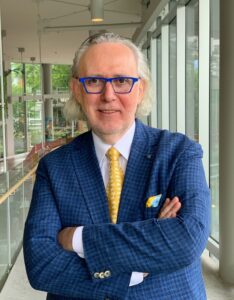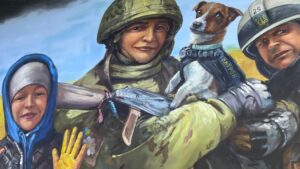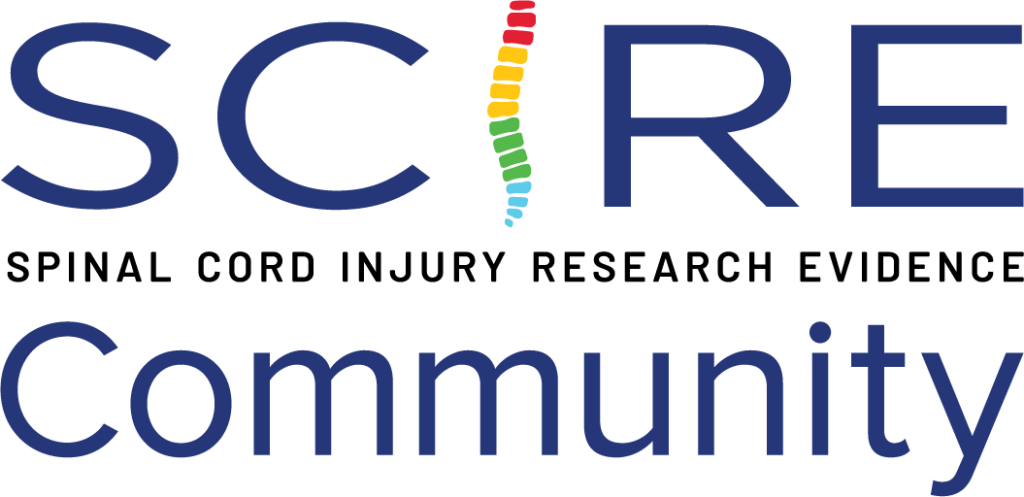Authors: Janice Eng, Dominik Zbogar | Published: 7 July 2025
Lending a hand to build SCI expertise in the Ukraine
We spoke to Dr. Andrei Krassioukov, Physiatrist in the Spinal Cord Program at Vancouver Coastal Health’s GF Strong Rehabilitation Centre.

Dr. Andrei Krassioukov, a rehabilitation physician with GF Strong Rehab Centre, clinician-researcher at the International Collaboration on Repair Discoveries (ICORD), as well as an expert contributor for the SCIRE Project, has been volunteering his time in Ukraine over the last two years.
Assembled by the World Health Organization, health care professionals in medicine, physical therapy, occupational therapy, nursing, and psychology have visited war zones on multiple occasions to establish a specialized national spinal cord injury centre in the Rivne region of Ukraine. Amidst the ongoing war, the number of patients with spinal cord injuries and other catastrophic injuries continues to increase. Spinal cord injury is a particularly specialized area of medicine so supplies, person power, and medical expertise are sorely needed.
Can you describe your role as a healthcare provider and World Health Organization representative in the Ukraine?
“It was mostly training, training, training clinicians. I had daily meetings with medical staff. We attended every morning clinical round on the acute wards and spinal cord wards.” Dr. K (how most people refer to him) taught clinicians how to conduct spinal cord injury assessments, using the International Standards for Neurological Classification (ISNCSCI). He provided training on autonomic dysreflexia, as well as bowel and bladder management. He led sessions on the management of spasticity after spinal cord injury, including how to use botulinum toxin injections and monitoring outcomes with muscle electromyography.

Ukraine street mural, as photographed by Dr. K. on April 12, 2024
What are some of the greatest challenges you have seen?
“Resources were scarce with only a few vials of botulinum toxin available per month. They were fortunate to get some international donations of botulinum toxin which helped to stretch their supplies. Most of these young people had multiple traumas, and their injuries are more complex than what we would see in a typical car accident. As the war has caused so much destruction, some people we discharge no longer have a place to go home to. Many people in Ukraine are already affected by depression, anxiety, and post-traumatic stress from the long war effort. This centre has brought in new resources for psychological support for coping with the devastating effects of these injuries and personal circumstances.”
What stood out for you the most during your time in the Ukraine?
“The work was stressful with continual alerts, bombings nearby, and evacuations to shelters, but not compared to the stress that Ukrainians have had to endure. What stood out for me was the humanity and resilience of the Ukrainian people who managed to find some happiness in moments of their life during the ongoing war. I saw this resiliency in the soldiers recovering from their injuries, and from the everyday people that I have met.”
The Spinal Cord Centre now has 100 beds and will serve as a model for similar facilities in other regions of Ukraine. We thank Dr. Krassioukov and all health care professionals who have been courageous enough to lend a hand during traumatic times.
![]()





